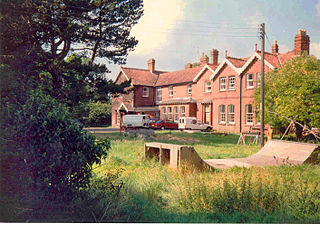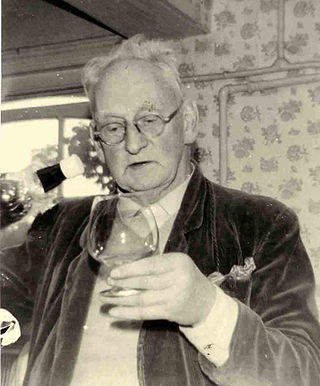Leiston is a town in the East Suffolk district of Suffolk, England. It is close to Saxmundham and Aldeburgh, 21 miles (34 km) north-east of Ipswich and 90 miles (145 km) north-east of London. The town had a population of 5,508 at the 2011 Census.

Summerhill School is an independent day and boarding school in Leiston, Suffolk, England. It was founded in 1921 by Alexander Sutherland Neill with the belief that the school should be made to fit the child, rather than the other way around. It is run as a democratic community; the running of the school is conducted in the school meetings, which anyone, staff or pupil, may attend, and at which everyone has an equal vote. These meetings serve as both a legislative and judicial body. Members of the community are free to do as they please, so long as their actions do not cause any harm to others, according to Neill's principle "Freedom, not Licence." This extends to the freedom for pupils to choose which lessons, if any, they attend. It is an example of both democratic education and alternative education.
An alternative school is an educational establishment with a curriculum and methods that are nontraditional. Such schools offer a wide range of philosophies and teaching methods; some have strong political, scholarly, or philosophical orientations, while others are more ad hoc assemblies of teachers and students dissatisfied with some aspect of mainstream or traditional education.
Alternative education encompasses educational philosophy differing from mainstream pedagogy and evidence-based education. Such alternative learning environments may be found within state, charter, and independent schools as well as home-based learning environments. Many educational alternatives emphasize small class sizes, close relationships between students and teachers and a sense of community.

Alexander Sutherland Neill was a Scottish educator and author known for his school, Summerhill, and its philosophy of freedom from adult coercion and community self-governance. Raised in Scotland, Neill taught at several schools before attending the University of Edinburgh in 1908–1912. He took two jobs in journalism before World War I, and taught at Gretna Green Village School in the second year of the war, writing his first book, A Dominie's Log (1915), as a diary of his life there as head teacher. He joined a Dresden school in 1921 and founded Summerhill on returning to England in 1924. Summerhill gained renown in the 1930s and then in the 1960s–1970s, due to progressive and counter-culture interest. Neill wrote 20 books. His top seller was the 1960 Summerhill, read widely in the free school movement from the 1960s.

Alternative High School (AHS) is a public senior high (secondary) school in Calgary, Alberta, Canada; which teaches grades 10 through 12. AHS is currently located at the Clinton Ford Centre, which was home to the former Clinton Ford Elementary School.

Democratic education is a type of formal education that is organized democratically, so that students can manage their own learning and participate in the governance of their school. Democratic education is often specifically emancipatory, with the students' voices being equal to the teacher's.
Sands School is a democratic school in Ashburton, Devon in England.
Homer Lane (1875–1925) was an American-born educator who believed that the behavior and character of children improved when they were given more control over their lives. Bertrand Russell called him "one of the best men of his generation".

Kilquhanity School was one of several free schools to have been established in the United Kingdom in the twentieth century. Others include Sands School in Devon, Summerhill in Suffolk, Sherwood School in Epsom and Kirkdale School in London.
The ERA School was a co-educational secondary school that opened in Melbourne in February 1971. The school was regarded as providing an 'alternative’ education curriculum. Attendance at lessons was not mandatory, and students could select their own study program. The school was loosely based on the Summerhill School in England that was founded by A.S. Neill. ERA was an acronym for 'Education Reform Association'.
Rowen House was an independent British boarding school founded in 1979 in Belper, Derbyshire. The name was not a misspelling, but a reference to the Utopian thinker and eutopian practitioner, Robert Owen. This "educational experiment" used the power of the childhood group like Summerhill School.
StoneSoup School was an alternative private school located in Crescent City, Florida in the United States. It was a member of the National Coalition of Alternative Community Schools.
The Scotland Road Free School was a short-lived example of democratic education and free-schooling started in the UK in 1970 by two Liverpool teachers, John Ord and Bill Murphy. The latter went on to initiate a closely linked project, Liverpool Community Transport.
Anarchism has had a special interest on the issue of education from the works of William Godwin and Max Stirner onwards.

Summerhill: A Radical Approach to Child Rearing is a book about the English boarding school Summerhill School by its headmaster A. S. Neill. It is known for introducing his ideas to the American public. It was published in America on November 7, 1960, by the Hart Publishing Company and later revised as Summerhill School: A New View of Childhood in 1993. Its contents are a repackaged collection from four of Neill's previous works. The foreword was written by psychoanalyst Erich Fromm, who distinguished between authoritarian coercion and Summerhill.
The free school movement, also known as the new schools or alternative schools movement, was an American education reform movement during the 1960s and early 1970s that sought to change the aims of formal schooling through alternative, independent community schools.
The Free School is the oldest independent, inner-city alternative school in the United States. Founded by Mary Leue in 1969 based on the English Summerhill School philosophy, the free school lets students learn at their own pace. It has no grades, tests, or firm schedule: students design their own daily plans for learning. The school is self-governed through a weekly, democratic all-school meeting run by students in Robert's Rules. Students and staff alike receive one equal vote apiece. Unlike Summerhill-style schools, the Free School is a day school that serves predominantly working-class children. Nearly 80 percent of the school is eligible for reduced-price meals in the public schools. About 60 students between the ages of three and fourteen attend, and are staffed by six full-time teachers and a number of volunteers.

Fifty Years of Freedom: A Study of the Development of the Ideas of A. S. Neill is a 1972 intellectual biography of the British pedagogue A. S. Neill by Ray Hemmings. It traces how Homer Lane, Wilhelm Reich, Sigmund Freud and others influenced Neill as he developed the "Summerhill idea", the philosophy of child autonomy behind his Summerhill School. The book follows Neill's early life and career in rural, Calvinist Scotland and continues through the influence of his mentors, Lane and Reich, and the origins of Summerhill after World War I. Written fifty years from Summerhill's founding, Fifty Years is a sociological and historical analysis of Neill's ideas in the context of intellectual and educational trends both during Neill's life and at the time of publication. Hemmings also surveyed progressive school leaders about Neill's impact on the field and reported their perception of influence on teacher–pupil relations. Fifty Years was first published in England in 1972 by George Allen and Unwin and was later renamed Children's Freedom: A. S. Neill and the Evolution of the Summerhill Idea for its 1973 American publication by Schocken Books.
The Collaberg School founded in 1961 was the first 'free school' in the United States based on the model of the Summerhill School in England. The school was located in Stony Point, 30 miles (48 km) from New York City. Collaberg School enrolled between 25 and 50 students from kindergarten through high school in its experimental curriculum. The school closed in 1970 but during its short lifespan was a touchpoint for many of the notable figures of the burst of creative energy that was the 1960s.






